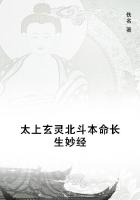DOUBTS AND FEARS OF COUNSEL
At a distance of thirty-four years, during which three great revolutions have taken place, none but elderly persons can recall the immense excitement produced in Europe by the abduction of a senator of the French Empire. No trial, if we except that of Trumeaux, the grocer of the Place Saint-Michel, and that of the widow Morin, under the Empire; those of Fualdes and de Castaing, under the Restoration; those of Madame Lafarge and Fieschi, under the present government, ever roused so much curiosity or so deep an interest as that of the four young men accused of abducting Malin. Such an attack against a member of his Senate excited the wrath of the Emperor, who was told of the arrest of the delinquents almost at the moment when he first heard of the crime and the negative results of the inquiries. The forest, searched throughout, the department of the Aube, ransacked from end to end, gave not the slightest indication of the passage of the Comte de Gondreville nor of his imprisonment. Napoleon sent for the chief justice, who, after obtaining certain information from the ministry of police, explained to his Majesty the position of Malin in regard to the Simeuse brothers and the Gondreville estate. The Emperor, at that time pre-occupied with serious matters, considered the affair explained by these anterior facts.
"Those young men are fools," he said. "A lawyer like Malin will escape any deed they may force him to sign under violence. Watch those nobles, and discover the means they take to set the Comte de Gondreville at liberty."He ordered the affair to be conducted with the utmost celerity, regarding it as an attack on his own institutions, a fatal example of resistance to the results of the Revolution, an effort to open the great question of the sales of "national property," and a hindrance to that fusion of parties which was the constant object of his home policy. Besides all this, he thought himself tricked by these young nobles, who had given him their promise to live peaceably.
"Fouche's prediction has come true," he cried, remembering the words uttered two years earlier by his present minister of police, who said them under the impressions conveyed to him by Corentin's report as to the character and designs of Mademoiselle de Cinq-Cygne.
It is impossible for persons living under a constitutional government, where no one really cares for that cold and thankless, blind, deaf Thing called public interest, to imagine the zeal which a mere word of the Emperor was able to inspire in his political or administrative machine. That powerful will seemed to impress itself as much upon things as upon men. His decision once uttered, the Emperor, overtaken by the coalition of 1806, forgot the whole matter. He thought only of new battles to fight, and his mind was occupied in massing his regiments to strike the great blow at the heart of the Prussian monarchy. His desire for prompt justice in the present case found powerful assistance in the great uncertainty which affected the position of all magistrates of the Empire. Just at this time Cambaceres, as arch-chancellor, and Regnier, chief justice, were preparing to organize /tribunaux de premiere instance/ (lower civil courts), imperial courts, and a court of appeal or supreme court. They were agitating the question of a legal garb or costume; to which Napoleon attached, and very justly, so much importance in all official stations; and they were also inquiring into the character of the persons composing the magistracy. Naturally, therefore, the officials of the department of the Aube considered they could have no better recommendation than to give proofs of their zeal in the matter of the abduction of the Comte de Gondreville. Napoleon's suppositions became certainties to these courtiers and also to the populace.
Peace still reigned on the continent; admiration for the Emperor was unanimous in France; he cajoled all interests, persons, vanities, and things, in short, everything, even memories. This attack, therefore, directed against his senator, seemed in the eyes of all an assault upon the public welfare. The luckless and innocent gentlemen were the objects of general opprobrium. A few nobles living quietly on their estates deplored the affair among themselves but dared not open their lips; in fact, how was it possible for them to oppose the current of public opinion. Throughout the department the deaths of the eleven persons killed by the Simeuse brothers in 1792 from the windows of the hotel Cinq-Cygne were brought up against them. It was feared that other returned and now emboldened /emigres/ might follow this example of violence against those who had bought their estates from the "national domain," as a method of protesting against what they might call an unjust spoliation.
The unfortunate young nobles were therefore considered as robbers, brigands, murderers; and their connection with Michu was particularly fatal to them. Michu, who was declared, either he or his father-in-law, to have cut off all the heads that fell under the Terror in that department, was made the subject of ridiculous tales. The exasperation of the public mind was all the more intense because nearly all the functionaries of the department owed their offices to Malin. No generous voice uplifted itself against the verdict of the public.
Besides all this, the accused had no legal means with which to combat prejudice; for the Code of Brumaire, year IV., giving as it did both the prosecution of a charge and the verdict upon it into the hands of a jury, deprived the accused of the vast protection of an appeal against legal suspicion.















